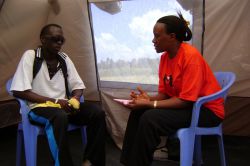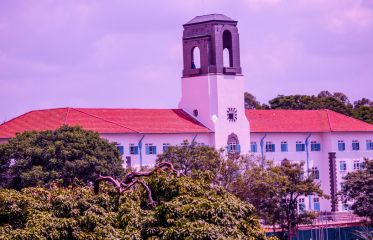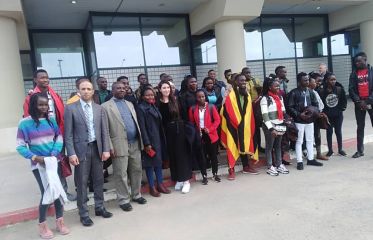Breaking News
- Ministry of Education and Sports Azerbaijan Government Scholarships For 2025-2026 Academic Year ...Read More
- Government Sponsorship Undergraduate Admission Lists 2025-26 for Makerere University ...Read More
- Ministry of Education And Sports: Egyptian Government Scholarships 2025-2026 Academic Year ...Read More
- Ground Breaker Full Scholarship for girls to study Software Engineering 2025 July Intake ...Read More
- Tony Elumelu Foundation Entrepreneurship Programme (TEEP) 2025 for young African Entrepreneurs ...Read More
- DESIGNING FUTURES 2050 International Design Competition 2025 (€15,000 prize) ...Read More
- Ground Breaker Full time Scholarship for girls to study Software Engineering 2025 Intake ...Read More
- Ministry of Education And Sports Algerian Vocational Training Scholarships for 2024-2025 AY ...Read More
- Ministry of Education and Sports Advert for the Algerian Government Scholarships for 2024-2025 ...Read More
- Uganda Dev Summit 2024 Live Stream ...Read More
The Schlumberger Foundation is accepting new applications for the 2023–2024 Faculty for the Future Fellowships
Deadline 11th November 2022
The Schlumberger Foundation is accepting new applications for the 2023–2024 Faculty for the Future Fellowships from September 5th to November 11th, 2022
The Faculty for the Future program, launched in 2004, awards fellowships to women from developing and emerging economies to pursue PhD or Post-doctoral research in science, technology, engineering and mathematics (STEM) fields at leading universities worldwide.
The Schlumberger Foundation is committed to gender parity in science and recognizes that full access to and participation in a STEM curriculum is essential for the empowerment of women and girls. By facilitating STEM research for women scientists in emerging economies, scientific and technological advances will be enhanced in the local communities and regions from where selected candidates are awarded for this program.
Since its launch in 2004, 807 women from 86 countries have received Faculty for the Future fellowships to pursue PhD and Post-doctoral research in STEM in leading universities and research institutes outside of their home country.
Faculty for the Future grants are based on actual costs for eligible expenses up to a maximum of USD 50,000 per year for a PhD and maximum of USD 40,000 per year for a Post-doc and may be renewed through to completion of studies. Renewal grants are subject to performance, recommendations from supervisors and strong evidence of re-integration plans in the home country.
Candidates should have applied to, have been admitted to, or be currently enrolled in a university abroad when submitting their grant application. Candidates must hold an excellent academic record, demonstrate leadership skills, community outreach activities and have a track record in encouraging girls and women into STEM fields.
Candidates should also prove their commitment to return to their home countries upon completion of their studies to contribute to the economic, social and technological advancement of their home regions by strengthening the STEM teaching and research faculties of their home institutions as well as through their leadership in science-based entrepreneurship.
They are also expected to contribute to the public sector where their newly acquired technical and
scientific skills can help provide evidence-based support for STEM policy making, including topics of
gender representation
Apply Here >>>
Top Courses Currently Admitting
-
Airline Cabin Crew Training (IATA) (Diploma)
Uganda Aviation School
-
Bachelor of Science in Agriculture
Muni University
-
Bachelor of Science in Ethnobotany
Makerere University
-
Diploma in Home Economics
Nkumba University
-
Diploma in Business Administration
Uganda Institute of Information and Communication Technology

























